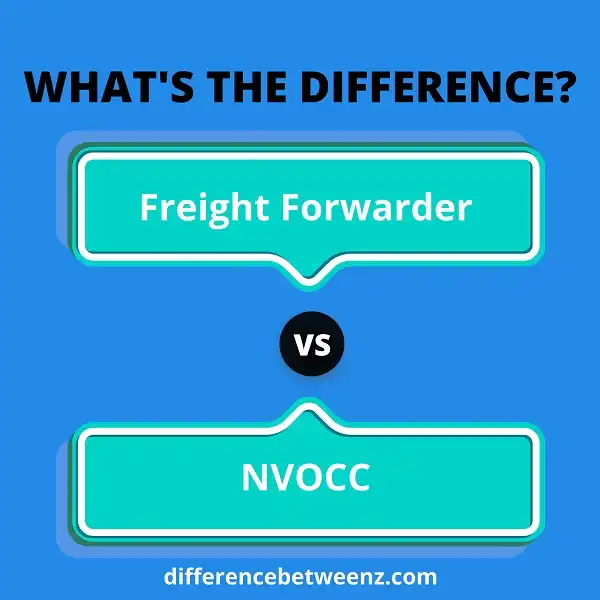What is the difference between a freight forwarder and an NVOCC? Both are transportation intermediaries, but there are some key distinctions. Freight forwarders focus on organizing shipments by air, sea, or land, while NVOCCs also offer cargo consolidation and act as shipping agent for large shippers. Here’s a closer look at how these two types of companies differ.
What is Freight Forwarder?
A freight forwarder is a company that organizes shipments for individuals or businesses to get goods from the manufacturer or producer to a market, customer, or final point of distribution. Freight forwarders typically arrange cargo space on various transportation vessels, prepare and process required documentation, track shipments, and interact with customs officials on behalf of their clients. Their ultimate goal is to get goods delivered on time and at a reasonable cost. While freight forwarders do not actually move the freight themselves, they play an important role in coordinating the transportation of goods via different modes of transport (e.g., air, ocean, rail, truck).
This coordination can be particularly complex when shipments involve multiple carriers and/or countries. Freight forwarding services are used for all types of commodities, including perishable items, livestock, chemicals, dangerous goods, oversize/overweight cargo, and vehicles. Freight forwarders are regulated by government bodies such as the Federal Maritime Commission (FMC) in the United States. Some freight forwarders are also members of professional organizations such as the World Freight Organization (WFO) or within their local country’s Chamber of Commerce.
What is NVOCC?
NVOCC stands for Non-Vessel Operating Common Carrier. NVOCCs are companies that provide ocean transportation services but do not own or operate their own vessels. Instead, they contract with steamship lines to transport their customers’ cargo. NVOCCs are regulated by the Federal Maritime Commission and must obtain a license in order to operate. NVOCCs play an important role in the global shipping industry, providing cost-effective transportation services for both small and large businesses. NVOCCs are able to offer competitive rates because they ship large volumes of cargo and have established relationships with steamship lines. As a result, NVOCCs are an important part of the global shipping industry, providing essential services to businesses around the world.
Difference between Freight Forwarder and NVOCC
Freight forwarders and NVOCCs are both involved in the business of shipping goods from one point to another. Freight forwarders are companies that provide logistics services, including arranging the transportation of goods, tracking shipments, and providing other support services. NVOCCs, on the other hand, are companies that own and operate their own fleet of ships. Both freight forwarders and NVOCCs play an important role in the supply chain, but there are some key differences between the two types of businesses. Freight forwarders generally have a more comprehensive range of services than NVOCCs, and they are also more likely to be involved in international shipments. NVOCCs, on the other hand, usually have a more focused service offering and tend to specialize in domestic shipping. As a result, freight forwarders and NVOCCs often complement each other in the supply chain.
Conclusion
Freight forwarders and NVOCCs are two types of transportation intermediaries. They both provide similar services but there are some key differences. A freight forwarder is a company that organizes the movement of goods for its customers. It contracts with carriers to move cargo between ports and arranges for the customs clearance and delivery of the goods. An NVOCC is a company that operates as a shipping carrier. It owns or charters vessels and sells space on those vessels to shippers who want to move their goods overseas.


